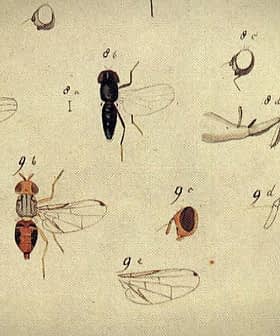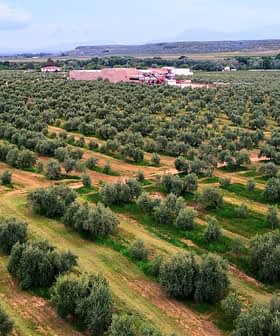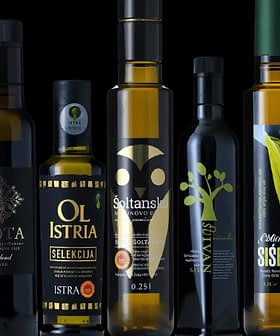Researchers Use AI to Identify the Olive Oil Compounds that Affect Alzheimer’s

New research has identified chemical compounds in extra virgin olive oil that could help prevent and treat Alzheimer’s disease, with ten phytochemicals showing promise in acting against plaque build-up in the brain. The study, using network machine learning algorithms, highlights the potential health benefits of extra virgin olive oil in addressing the rising rates of dementia predicted for the future.
New research has identified chemical compounds in extra virgin olive oil that could help to prevent and treat Alzheimer’s disease, the most common form of dementia, using network machine learning algorithms.
In the study published in Human Genomics, the international research team identified ten phytochemicals that appear to act similarly to known pharmaceutical agents against plaque build-up in the brain.
The abnormal build-up of protein in and around the brain is one of the main characteristics of Alzheimer’s disease. Separate research predicts the rates of dementia will triple by 2050 due to the rising number of older people and diet and lifestyle choices that accelerate the disease.
See Also:Health NewsThe researchers from Yale School of Public Health, Imperial College London and the University of Athens said these compounds could be the subjects of future clinical studies.
“Our study, which integrates artificial intelligence, analytical chemistry, and omics studies into a unique framework, provides fresh perspectives on how extra virgin olive oil might contribute to the prevention and or treatment of Alzheimer’s disease,” said Vasilis Vasiliou, the chair of Yale School of Public Health’s environmental health sciences department.
In the study, the researchers initially identified 67 bioactive chemicals in extra virgin olive oil that could potentially slow the causes and mitigate the symptoms of Alzheimer’s disease.
Using the machine learning algorithm, they simulated how the compounds might disrupt the accumulation of plaque associated with the disease.
Researchers said the study was unique because it uses a machine learning tool tailored to process network structures common in biological data.
Of the ten phytochemicals identified in the study – quercetin, genistein, luteolin, palmitoleate, stearic acid, apigenin, epicatechin, kaempferol, squalene and daidzein – researchers determined that quercetin had the highest likelihood of acting similarly to current medications against Alzheimer’s disease.
Previous research showed that quercitin might inhibit the buildup of amyloid beta, the protein most associated with the disease. Separate studies have also found that quercitin may mitigate the impacts of oxidative stress, which plays a significant role in the progression of neurodegenerative illnesses.
While the researchers believe these findings are highly relevant to highlighting the health benefits of extra virgin olive oil, they acknowledged the study’s limitations.
The researchers said the algorithm only identified extra virgin olive oil chemical compounds that appear to impact the development of proteins but could not gauge their effectiveness.
Furthermore, the algorithm was trained only using approved Alzheimer’s medication in the United States, meaning other potentially effective chemicals in extra virgin olive oil may not be identified.
“It is only through the conduct of such studies that the predictive utility of our machine learning approach will be validated,” the authors wrote.
“While the results of the present study shed light on how extra virgin olive oil may help treat or prevent Alzheimer’s disease, the same approach may be applied to identify extra virgin olive oil phytochemicals (or other food constituents) that treat other diseases, such as dementia, hypertension or dyslipidemia,” they concluded.









